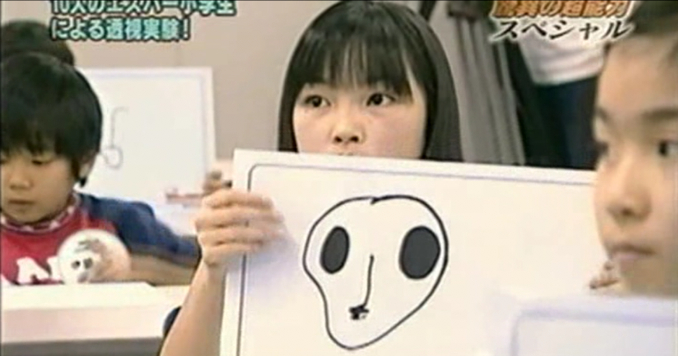Ah, yes. Another big old hole in my horror education is Asian Extreme, the umbrella term that usually encompasses horror films produced across the continent. Last year I had the pleasure of experiencing, for the first time, Hideo Nakata’s original Ring, so this year I went for one of Nakata’s slightly lesser known films: Dark Water, a 2002 movie about some terrifying plumbing problems.
Dark Water follows Yoshimi Matsubara (Hitomi Kuroki), a woman battling for custody of her daughter Ikuko (Rio Kanno), who’s just going into kindergarten. In an effort to prove that she’s capable of caring for her child properly, Yoshimi moves into an apartment building right around the corner from Ikuko’s school. Things are a bit weird right from the start – the super is wholly uninterested in welcoming the pair to the building, and the manager seems very eager to unload the apartment. When Ikuko discovers a child’s bag on the roof of the building, Yoshimi freaks out, insisting that her daughter throw it out. Once they’ve moved in, Yoshimi notices a patch of water on the ceiling that seems to grow larger with every passing day. She complains, but the super won’t do anything about it, and the patch continues to grow, dripping water into the bedroom. The creepy bag continues to make appearances, along with the silhouette of a girl in the empty apartment just above them. Is Yoshimi going crazy or is there actually a ghost roaming the building?
Dark Water is a surprising film in many ways, not the least of them being that it’s more melancholic than terrifying. As we learn more about who the ghost might be, and why she’s wreaking such havoc with the water supply, what comes into focus is not a malevolent spirit coming after Yoshimi and her child, but a lost soul searching for something to cling to. The film plays with the notion of neglect passed down from generation to generation, infecting the entire society so that all wind up paying for their crime of simply doing nothing to help. Yoshimi’s one goal is to keep her daughter with her, but she’s strained to the breaking point, facing a husband she suspects is following her and a set of well-meaning but ultimately cold legal counsels. She has no friends and no real family – it’s implied that her mother more or less abandoned her. Her solace is Ikuko; her reason for continuing to work, and to suffer, is her daughter. That mother-love, intense and heartbreaking, is a thread that runs through the film.
This is a more restrained film than Ring. It’s also less overtly terrifying, relying more on the creation of atmosphere than on creepy creatures or jump scares. A melancholy pervades the film, focalized through Yoshimi, who cannot tell if she’s really seeing ghosts or just going mad. But her drive to understand and somehow expel the spirit, or whatever it is that haunts her, works in tandem with her desperation to keep her daughter. Dark Water becomes a movie about generational sacrifice to protect and give solace to children, including those that have been lost or abandoned.
Dark Water is a slow-burning, melancholic ghost story that never quite reaches the horrific heights of Ring, yet is not the less moving and horrifying for that. A lesser film, in some ways, but an interesting one nevertheless.

